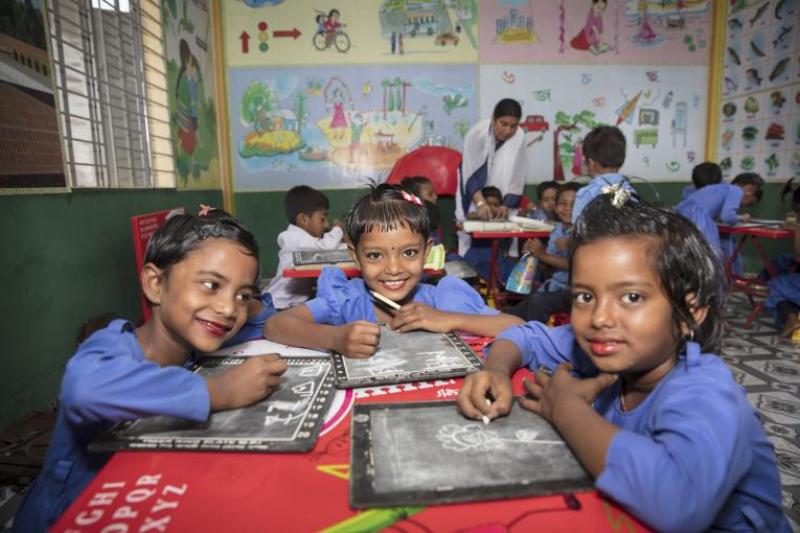
40 million children miss out on early education in critical pre-school year due to COVID-19: UNICEF
Dhaka: At least 40 million children worldwide have missed out on early childhood education in their critical pre-school year as COVID-19 shuttered childcare and early education facilities, according to a new research brief published today by UNICEF.
Produced by UNICEF’s Office of Research – Innocenti, the research brief looks at the state of childcare and early childhood education globally and includes an analysis of the impact of widespread COVID-19 closures of these vital family services.
“Education disruptions caused by the COVID-19 pandemic are preventing children from getting their education off to the best possible start,” said UNICEF Executive Director Henrietta Fore. “Childcare and early childhood education build a foundation upon which every aspect of children’s development relies. The pandemic is putting that foundation under serious threat.”
Childcare in a global crisis: The impact of COVID-19 on work and family life notes that lockdowns have left many parents struggling to balance childcare and paid employment, with a disproportionate burden placed on women who, on average, spend more than three times longer on care and housework than men.
The closures have also exposed a deeper crisis for families of young children especially in low- and middle-income countries, many of whom were already unable to access social protection services. Childcare is essential in providing children with integrated services, affection, protection, stimulation and nutrition and, at the same time, enable them to develop social, emotional and cognitive skills.
Before the COVID-19 pandemic, unaffordable, poor-quality or inaccessible childcare and early childhood education facilities forced many parents to leave young children in unsafe and unstimulating environments at a critical point in their development, with more than 35 million children under the age of five globally sometimes left without adult supervision.
Out of 166 countries, less than half provide tuition-free pre-primary programmes of at least one year, dropping to just 15 per cent among low-income countries.
Many young children who remain at home do not get the play and early learning support they need for healthy development. In 54 low- and middle-income countries with recent data, around 40 per cent of children aged between 3 and 5 years old were not receiving social-emotional and cognitive stimulation from any adult in their household.
Lack of childcare and early education options also leaves many parents, particularly mothers working in the informal sector, with no choice but to bring their young children to work. More than 9 in 10 women in Africa and nearly 7 in 10 in Asia and the Pacific work in the informal sector and have limited to no access to any form of social protection. Many parents become trapped in this unreliable, poorly paid employment, contributing to intergenerational cycles of poverty, the report says.
Access to affordable, quality childcare and early childhood education are critical for the development of families and socially cohesive societies. UNICEF advocates for accessible, affordable and quality childcare from birth to children’s entry into the first grade of school.
The research brief offers guidance on how governments and employers can improve their childcare and early childhood education policies including by enabling all children to access high-quality, age-appropriate, affordable and accessible childcare centres irrespective of family circumstances.
The guidance also outlines additional family-friendly policies including:
Paid parental leave for all parents so that there is no gap between the end of parental leave and the start of affordable childcare;
Flexible work arrangements that address the needs of working parents;
Investment in the non-family childcare workforce including training;
Social protection systems including cash transfers that reach families working in non-formal employment.
“The COVID-19 pandemic is making a global childcare crisis even worse,” Fore said. “Families need support from their governments and their employers to weather this storm and safeguard their children’s learning and development.”
Support Our Journalism
We cannot do without you.. your contribution supports unbiased journalism
IBNS is not driven by any ism- not wokeism, not racism, not skewed secularism, not hyper right-wing or left liberal ideals, nor by any hardline religious beliefs or hyper nationalism. We want to serve you good old objective news, as they are. We do not judge or preach. We let people decide for themselves. We only try to present factual and well-sourced news.







